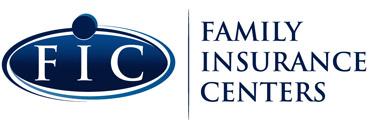Do You Need Life Insurance If You Don’t Have Children?
You don’t have dependents. And that makes you wonder if life insurance is really an expense that you need. Before you skip this beneficial type of policy, take a look at why adults without children need life insurance too.
Dependent Spouse
Dependents don’t always equal children. While young children are financially dependent on their parents, so are some spouses. According to LIMRA’s 2018 Insurance Barometer Study, over one-third of American households would struggle financially following the death of the primary breadwinner. This includes households with and without children.
If you are the primary earner, you need life insurance if your situation fits the following:
- Your spouse doesn’t plan on working in the future
- Your spouse is injured or ill and cannot work.
- Your spouse is in any other way dependent on your income.
- You don’t have significant savings.
The benefits from a life insurance policy can help the non earning spouse to buy groceries, pay bills,and continue the lifestyle that they’re accustomed to.
Final Expenses
The cost of living isn’t the only expense that’s risen in the past few decades. According to the U.S. Bureau of Labor Statistics (BLS), the costs related to dying have also gone up. Between 1986 and 2017 the average cost of a funeral has increased by over 227 percent.
If you don’t have money set aside to pay for final expenses, your dependent spouse will need to cover these costs. Leaving your spouse without money to do so could potentially put the min debt, making an already challenging time worse. A life insurance policy provides the money necessary to pay for funeral-related costs as well as the surviving spouse’s living costs afterwards.
Financial Obligations
In the event of the unthinkable, the surviving spouse may have to pay off the deceased person’s debts. The specifics of what the surviving spouse is legally obligated to pay and how they pay depends on the debt itself and the individual state’s rules regarding community property.
Arizona, California, Idaho, Louisiana, Wisconsin, Texas, Nevada, New Mexico, Washington,and Alaska(depending on the type of agreement) all have community property laws that require the surviving spouse to use community property (owned by both spouses) to pay the deceased spouse’s death.
If the couple has joint credit cards or are cosigners on a loan or mortgage, the surviving spouse typically must pay the deceased spouse’s debts. Money from a life insurance policy can ease this burden, making it easier for the surviving spouse to continue making regular payments.
Family Members
A spouse isn’t necessarily the only person who may depend on an earner for financial support. If you have no children and are unmarried, you may still have family members (such as aging parents or a disabled sibling) who need your help.
Like a surviving spouse, surviving family members who have cosigned a loan or have a joint credit card account with the deceased person will become solely financially responsible for the debt following the primary earner’s passing. The money from a life insurance policy allows the family member to keep up with regular payments on the joint debt.
Even though your family member cosigner or co-account holder may be financially responsible for outstanding financial obligations that you have, parents or siblings who are an authorized user on a credit card will not need to pay the deceased family member’s bills. They must be named as a joint account holder.
If you leave the benefits from a life insurance policy to a designated family beneficiary, you can continue help helping your loved one financially.
Do you need to explore your life insurance policy options? Contact Family Insurance Centers for more information.
